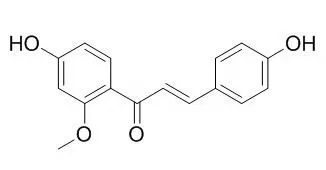| Kinase Assay: |
| Molecular Plant Pathology, 2015, 16(9):973-986. | | Transcriptome analysis highlights preformed defences and signalling pathways controlled by the prAe1 quantitative trait locus (QTL), conferring partial resistance to Aphanomyces euteiches in Medicago truncatula.[Reference: WebLink] |
METHODS AND RESULTS:
To gain an insight into the molecular mechanisms of quantitative disease resistance in Medicago truncatula to the root-infecting oomycete Aphanomyces euteiches, we selected two near-isogenic lines (NILs), NR and NS, partially resistant and susceptible, respectively, differing in the allelic state of the quantitative resistance locus (QRL) prAe1 (partially resistant to A. euteiches 1). Complementary molecular and cytological phenotyping methods showed that prAe1 alone confers quantitative resistance to A. euteiches. Root and stem tissues were colonized in NS plants and 80% of NS plants died by 21 days post-inoculation (dpi). In contrast, A. euteiches mycelium was restricted to the root cortex and the spread of symptoms was arrested in aerial parts of NR plants. A transcriptome analysis performed at 0, 1 and 6 dpi identified 1198 differentially expressed genes (DEGs) between NR and NS lines. More than 87% of the DEGs were significantly more expressed in NR. The highest number of DEGs was found in control conditions, with 723 genes over-expressed in NR versus 85 in NS. Genes belonging to secondary metabolism, pathogenesis-related (PR) proteins and kinases were significantly enriched. The significant role of the flavonoid pathway in resistance was corroborated by the detection of larger amounts of flavonoids in NR roots and the inhibition of A. euteiches zoospore germination by 2'-O-Methylisoliquiritigenin, a compound synthesized by enzymes specifically induced in NR.
CONCLUSIONS:
Our study revealed that prAe1-dependent resistance relies mainly on the constitutive expression of defence-related pathways and signalling elements, which can be re-amplified in later time points of the infection. |
|






 Cell. 2018 Jan 11;172(1-2):249-261.e12. doi: 10.1016/j.cell.2017.12.019.IF=36.216(2019)
Cell. 2018 Jan 11;172(1-2):249-261.e12. doi: 10.1016/j.cell.2017.12.019.IF=36.216(2019) Cell Metab. 2020 Mar 3;31(3):534-548.e5. doi: 10.1016/j.cmet.2020.01.002.IF=22.415(2019)
Cell Metab. 2020 Mar 3;31(3):534-548.e5. doi: 10.1016/j.cmet.2020.01.002.IF=22.415(2019) Mol Cell. 2017 Nov 16;68(4):673-685.e6. doi: 10.1016/j.molcel.2017.10.022.IF=14.548(2019)
Mol Cell. 2017 Nov 16;68(4):673-685.e6. doi: 10.1016/j.molcel.2017.10.022.IF=14.548(2019)